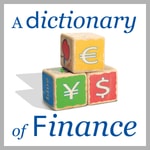A Dictionary of Finance – Détails, épisodes et analyse
Détails du podcast
Informations techniques et générales issues du flux RSS du podcast.

A Dictionary of Finance
European Investment Bank
Fréquence : 1 épisode/18j. Total Éps: 69

Hosted on Acast. See acast.com/privacy for more information.
Classements récents
Dernières positions dans les classements Apple Podcasts et Spotify.
Apple Podcasts
🇫🇷 France - investing
02/08/2025#100🇫🇷 France - investing
21/06/2025#89🇫🇷 France - investing
15/10/2024#76
Spotify
Aucun classement récent disponible
Liens partagés entre épisodes et podcasts
Liens présents dans les descriptions d'épisodes et autres podcasts les utilisant également.
See all- https://www.facebook.com/
4210 partages
- http://www.purple-planet.com
1187 partages
- https://www.harvard.edu/
84 partages
- http://www.worldbank.org/
28 partages
- https://twitter.com/EIBMatt
41 partages
- https://twitter.com/AllarTankler
23 partages
- http://www.twitter.com/allartankler
6 partages
Qualité et score du flux RSS
Évaluation technique de la qualité et de la structure du flux RSS.
See allScore global : 64%
Historique des publications
Répartition mensuelle des publications d'épisodes au fil des années.
Inside the EU’s massive stimulus package
lundi 16 novembre 2020 • Durée 24:10
Hosted on Acast. See acast.com/privacy for more information.
The digital pixie dust clean-up
Saison 2 · Épisode 7
mardi 7 janvier 2020 • Durée 22:51
When we speak of the virtual world and storing things in ‘the cloud’, we seldom stop to realize that our digital climate impact is not virtual at all
Many people see digitalisation as this magical pixie dust that Tinker Bell sprinkles on old industries to make them all environmentally friendly. Stop printing newspapers and get your news online and suddenly your environmental footprint is down to zero, right?
Wrong.
In this episode of the Monster Under the Bed podcast we learn:
· What is the climate impact of the digital sector?
· What is Jevon’s paradox?
· What is the digital sector doing to clean up its act?
· That even when digital services use renewable energy, it might be using up renewable energy that otherwise might be used by more critical sources. So we should hold off on all those cat videos
· How can you personally curtail the CO2 emissions of our own use of technology?
My guests on this episode are the European Investment Bank’s head of division for digital infrastructure Harald Gruber and risk manager Shirley Rizk. They are but two of the many experts at the EU bank who are helping me challenge various rumours, myths, and misconceptions that we are trying to overturn on this series of podcasts.
Each episode features one ‘monster under the bed’ something that we are scared of, or mistakenly believe to be true. Check out our episodes on urbanisation, healthcare, education and much more.
Look up Monster Under the Bed on your phone’s podcast app, and click ‘Subscribe’ or ‘Follow’. This way you can sleep soundly without worrying about missing any episodes – and during the night Tinker Bell will sprinkle a new episodes into your phone for you!
Also, please rate and review us, and give us feedback – I’m @AllarTankler on Twitter.
Hosted on Acast. See acast.com/privacy for more information.
Private equity: Show us the love money
Saison 1 · Épisode 60
dimanche 26 août 2018 • Durée 33:10
Hosted on Acast. See acast.com/privacy for more information.
Project finance: Can you drive a special purpose vehicle?
Saison 1 · Épisode 59
dimanche 19 août 2018 • Durée 19:02
Hosted on Acast. See acast.com/privacy for more information.
Anti-fraud: CSI for bankers
Saison 1 · Épisode 58
dimanche 12 août 2018 • Durée 27:27
Hosted on Acast. See acast.com/privacy for more information.
Risk models: What's your distance to default?
Saison 1 · Épisode 57
dimanche 5 août 2018 • Durée 28:07
Hosted on Acast. See acast.com/privacy for more information.
Macroeconomics makes economics simple
Saison 1 · Épisode 56
dimanche 29 juillet 2018 • Durée 24:59
Find out how macroeconomics works with an overview of Adam Smith and the invisible hand, the Keynesian approach and the Chicago school. Macro (big) is the opposite of micro (small). So macroeconomics is the opposite of microfinance, right? Sorry, things are never that simple in banking. Listen to our episode on microfinance to see what that’s all about. And listen to this episode so you’ll know how macroeconomics works. In fact, you’ll see that, in a way, the main role of macroeconomics is to simplify economics. European Investment Bank economist Rozalia Pal explains that:
Macroeconomics deals with the economic performance of aggregated individual actors (companies, or people). In other words, what you do with your money is microeconomics. What the EU does with its money is macroeconomics.
We also learn about the history and the approaches behind various schools of thought in economic studies:
The classical school of thought, led by Adam Smith, famous for his ‘invisible hand’ metaphor. Smith posited that the invisible hand of the market creates the desired equilibrium.
Keynesian economics: During the Great Depression, Rozalia tells us, many economists came to see the invisible hand as failing to working (or at least failing to work fast enough). So the thinking of John Maynard Keynes rose to prominence. The British economist advocated the use of monetary (meaning, focused on interest rates) and fiscal (focused on government spending and taxation) interventions to stimulate the economy.
Neo-Keynesians: Following Keynes, Paul Samuelson and Franco Modigliani developed his ideas using mathematical models.
Chicago school economics, also called the neo-classical approach, opposed the Keynesian view mostly by showing that government interventions only impact the demand side of the economy. As the supply side is left intact, the effects are only short-term. Milton Friedman promoted what is known as a monetarist approach, proposing a small, but steady expansion of money supply.
Does this sound like a simplification? Well, that’s what macroeconomics tries to do, Rozalia tells us. To take lots of different inputs and create an overarching idea.
Hosted on Acast. See acast.com/privacy for more information.
How Europe's investment fund hit its target
Saison 1 · Épisode 55
mercredi 18 juillet 2018 • Durée 26:01
Hosted on Acast. See acast.com/privacy for more information.
M&A: When the financial gloves come off
Saison 1 · Épisode 54
dimanche 15 juillet 2018 • Durée 28:40
If you want to know how mergers and acquisitions work, you’d best ask a lawyer. Because there are legions of them involved in any M&A deal (as mergers and acquisitions are known).
We hear from two lawyers with extensive experience in M&A, as well as other aspects of corporate law and equity financing, about exactly how mergers and acquisitions work.
Alexandra Slack, senior legal counsel at the European Investment Fund, and her European Investment Bank colleague Tom Nguyen take us through the story of M&A from the 1980s, when the field was so wild, hostile and controversial that it prompted a best-selling book called “Barbarians at the Gate,” through to more recent moves toward a less confrontational style of merger. On the way, Tom namechecks Gordon Gecko. Of course.
“From the legal perspective, a merger is when one company absorbs another and therefore becomes one entity,” says Alexandra. “In an acquisition, one company takes a majority stake in another and the two companies continue to exist.”
For fans of financial definitions (and this is A Dictionary of Finance, after all), Tom and Alexandra explain various terms, including:
Squeeze out, which allows an acquirer to buy the whole company, once a certain percentage of the shareholders accept its offer. This is a way of dealing with a dead register.
A dead register refers to shareholders who have changed address, for example, but haven’t informed the company, so they don’t respond to an offer to buy their shares by another company.
If there are terms or concepts you would like us to explore, give us a shout on Twitter (@EIBMatt or @AllarTankler). Or just send us a picture of you with your hair gelled like Gordon Gecko.
Hosted on Acast. See acast.com/privacy for more information.
Social finance: Warm, fuzzy banks
Saison 1 · Épisode 53
dimanche 8 juillet 2018 • Durée 32:39
Let’s face it, people don’t like bankers. But that’s because they don’t know about social finance. On this week’s episode of ‘A Dictionary of Finance’ we hear about social finance, which tackles social issues such as migration or the integration of prisoners into society. Listen, because it will make you feel warm and fuzzy. The episode also shows you how to get financing for your business through programmes backed by the European Investment Fund. If you think you might need a microfinance loan, go to 23:10 in the episode and hear Sam Clause, senior investment officer at the European Investment Fund for inclusive finance, explain how it works. At 27:20, Yvette Go, the EIF’s head of social and environmental impact investment, explains how you can get different types of equity financing for your social venture. As this is A Dictionary of Finance, we’ll also look at important terms, including ethical bank. An ethical bank is a place people might invest their money if they want to be sure the bank, in turn, invests in social enterprises. Sam tells you more about this at 30:20, explaining where to find details of an ethical bank in your country. If there are terms or concepts you would like us to explore, give us a shout on Twitter (@EIBMatt or @AllarTankler).
Subscribe to our podcast, rate us, and review us! You can do most of those things on any podcast platform you prefer, be it iTunes, Acast or Spotify.
Hosted on Acast. See acast.com/privacy for more information.









